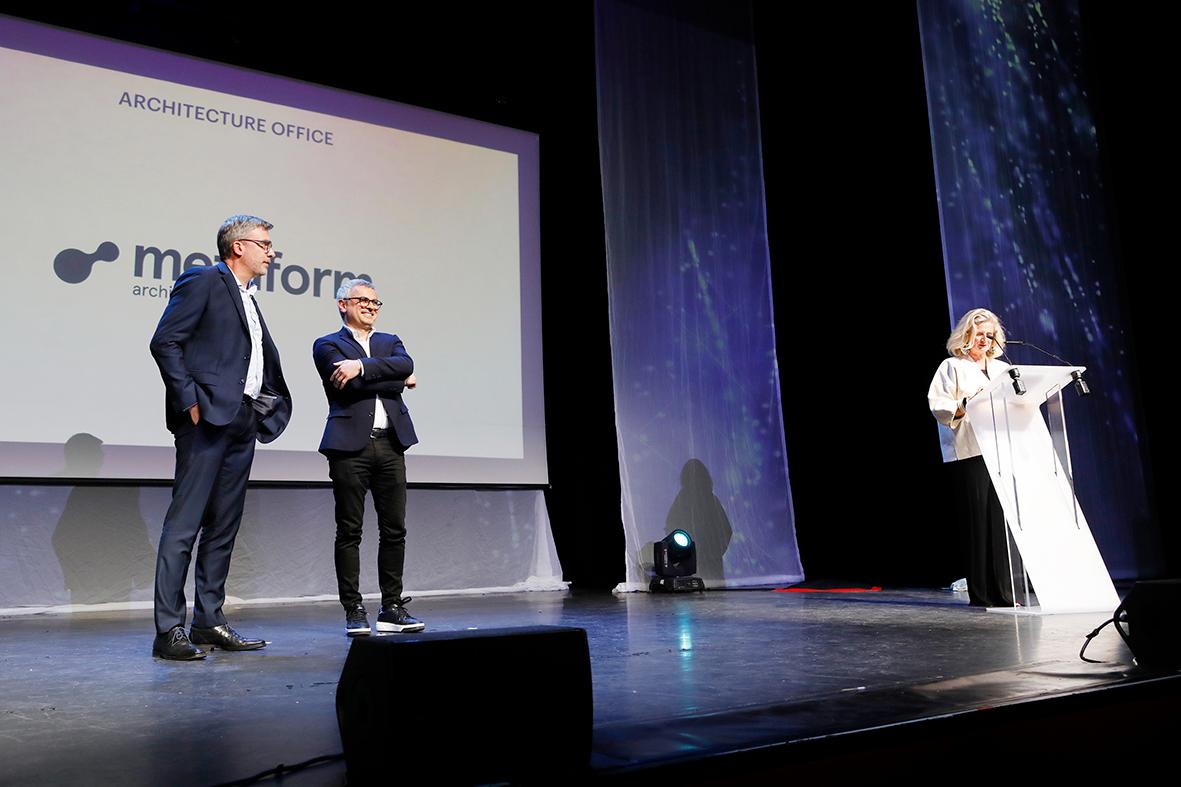Read the full newsletter here
‘Increased collaboration is crucial as projects grow more complex’
Winner of the Real Estate Awards in the Architecture Offices category, the METAFORM team discusses the main challenges for design and construction in 2025, addressing competition, sustainable design, cost control, investment in technology, and team training.

"In 2025, Luxembourg’s architecture and construction market will continue to evolve through economic shifts and innovations. Public investments in housing and infrastructure will play a crucial role in stabilizing the market, particularly as population growth and housing demand persist. While the residential sector may gain momentum, sustainable, energy-efficient housing must remain a priority, driven by climate awareness and European regulations.
A significant trend could be the rise of adaptable buildings—designed for multiple uses, such as converting offices into housing—necessitating updated design concepts and regulatory frameworks (e.g., PAG, norms). Equally important is adaptive reuse, where existing buildings are repurposed for new functions, reducing environmental impact while preserving architectural heritage. At Metaform, we are deeply engaged in exploring these strategies, ensuring our projects are flexible, sustainable, and future-ready.
Despite recent challenges,
signs of cautious recovery are emerging. However, 2025 and 2026 will likely
test the resilience of developers and construction professionals alike. While
recovery may be gradual after 2024, we believe our commitment to sustainable
and human-centered design positions us to lead in this evolving landscape.
Interest rate and competition effects
The real estate sector in
2025 presents both risks and opportunities. Interest rate volatility could
disrupt project financing, while competitive pricing, though beneficial for
those looking to build their own homes, may put pressure on construction companies—potentially
threatening the financial stability of those unable to adapt, reminiscent of
the post-2008 era.
Growing demand for sustainable designs
However, there are significant opportunities. Government incentives for affordable and energy-efficient housing help reduce costs and improve project viability. At Metaform, we see a growing opportunity in sustainable design. By continuously integrating ecological practices into our work, we can maintain a competitive edge in a market increasingly shaped by environmental consciousness. Additionally, adopting technological innovations such as BIM and AI has already expanded possibilities for us, enhancing coordination and design efficiency.
Initiatives such as the
Design and Build projects from the City of Luxembourg, in which we are
currently involved, foster collaboration between the public and private
sectors. We see these as pivotal moments to rethink approaches to affordable
housing and better align solutions with the financial challenges faced by
Luxembourg’s middle class.
Adapting by integrating new technologies
We anticipate challenges in
integrating technologies such as AI, BIM, and robotics, which require
substantial training and investment. Balancing sustainability with
profitability will also be a key concern, especially as regulations and public
expectations continue to evolve. Economic uncertainty and market fluctuations
will further drive professionals to diversify and innovate.
Strengthening collaboration
At Metaform, we recognize the importance of seamless collaboration across disciplines. By working closely with engineers, stakeholders, and clients, we ensure that even the most complex projects are delivered efficiently and creatively. We encourage industry professionals to prioritize continuous learning, embrace technological innovation, and strengthen collaboration between architects and engineers within an integrated global project management team alongside other stakeholders.
By focusing on sustainability and maintaining a human-centered approach, we believe that our firm—and other forward-thinking companies—can remain competitive while creating spaces that inspire, enrich communities, and drive meaningful, lasting impact.”
Shahram
Agaajani, Thierry Cruchten, GG Kirchner, Steve Weyland
METAFORM